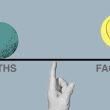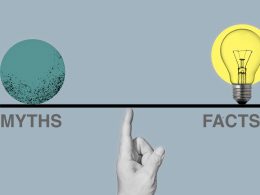by Professor Jeremy J. Siegel, Senior Economist to WisdomTree and Emeritus Professor of Finance at The Wharton School of the University of Pennsylvania
I have been describing the economic data as a Goldilocks scenario—and recent data continues to confirm this view of the economy being strong without being so strong that it motivates further tightening from the Federal Reserve (Fed). I was actually a little relieved jobless claims jumped a touch this week off of the near 60-year lows from the prior week. We don’t want a big jump in unemployment, but we also don’t want so much tightness in the labor market to concern the Fed to stay too high for too long. Jobless claims in the range of 200-240k each week is what we’ll be watching for the Goldilocks scenario to continue.
All other real economic indicators are coming in strong. Real gross domestic product (GDP) for the fourth quarter came in at 3.3%, well ahead of consensus expectations of 2.0%. Of course, these are past data points and some of the strength can be attributed to inventory build-up that can weigh on the current first quarter GDP. Early estimates for the first quarter GDP are at 1.5 - 2% although the Federal Reserve Bank of Atlanta’s GDPNow model shows growth closer to 3%. A few other real economic indicators also came in strong last week—notably the S&P Global Purchasing Managers' Index (PMI) indicators were ahead of expectations.
These data points will make the Fed decision this week easy. There will be no change in rates, and Powell will not indicate any rush to lower rates with the economy humming. The Fed must be looking at the inflation data as very positive. The core Personal Consumption Expenditures (PCE) Price Index, one of the Fed’s preferred measures of inflation, has been annualizing below 2% for the last six months. But the inflation data has not come in so low that the Fed will be rushing to lower rates. But I will say, if the Fed were to use some measures of real time rents—from either the Apartment List Rent Estimates data series or even the Federal Reserve Bank of Cleveland’s measure of real time rents—the Fed would see the Consumer Price Index (CPI), both core and headline, well below its 2% targets.
After bad policy for two years following the COVID pandemic, the Fed finally has monetary conditions tight enough to bring the economy back to a more normal state without causing inflation. The tone we’ll hear from Powell is he is quite pleased with the trajectory of the economy and inflation.
There is a lot of buzz about whether quantitative tightening (QT), the reduction of the Fed’s balance sheet, will be tapered or allowed to continue at its current pace. The Fed added $4 trillion of reserves to the system during the pandemic stimulus and it has only reduced this by $1 trillion thus far. My feeling is the Fed does not need to taper QT. I don't see any tightness in reserves, but I'm sure there be questions about QT following his speech.
Earnings are coming in ok so far, with an aggregate beat rate around 70%. There’s some notable beats and misses. The most notable miss was from Tesla. In a year of political consequences, Elon Musk highlighted the strength of China electric vehicle (EV) companies like BYD Company, and he commented that without tariffs he is not sure EV companies around the world will be able to compete with China. As you may recall, Tesla is part of the Magnificent Seven. Can these stocks keep up their momentum? Tesla’s performance last week shows what happens when you have a high multiple but then questions emanate about the robustness of earnings growth.
We are getting further into election season, and it looks very much like Trump versus Biden rematch. I don’t see one candidate being better or worse for the stock market. There are pluses and minuses for each. On the positive side, while many want alternative candidates, I point out it could be much worse. We do not have a socialist candidate that could really mess up the capital markets. I think it's more important to know whether the House of Representatives will stay Republican. They hold a very narrow margin and I think that the House might turn Democratic while the Senate will flip Republican. Tax laws will be reshaped after the presidential race, but the big picture is that neither candidate is dramatically different for our equity market prospects.
Copyright © WisdomTree













